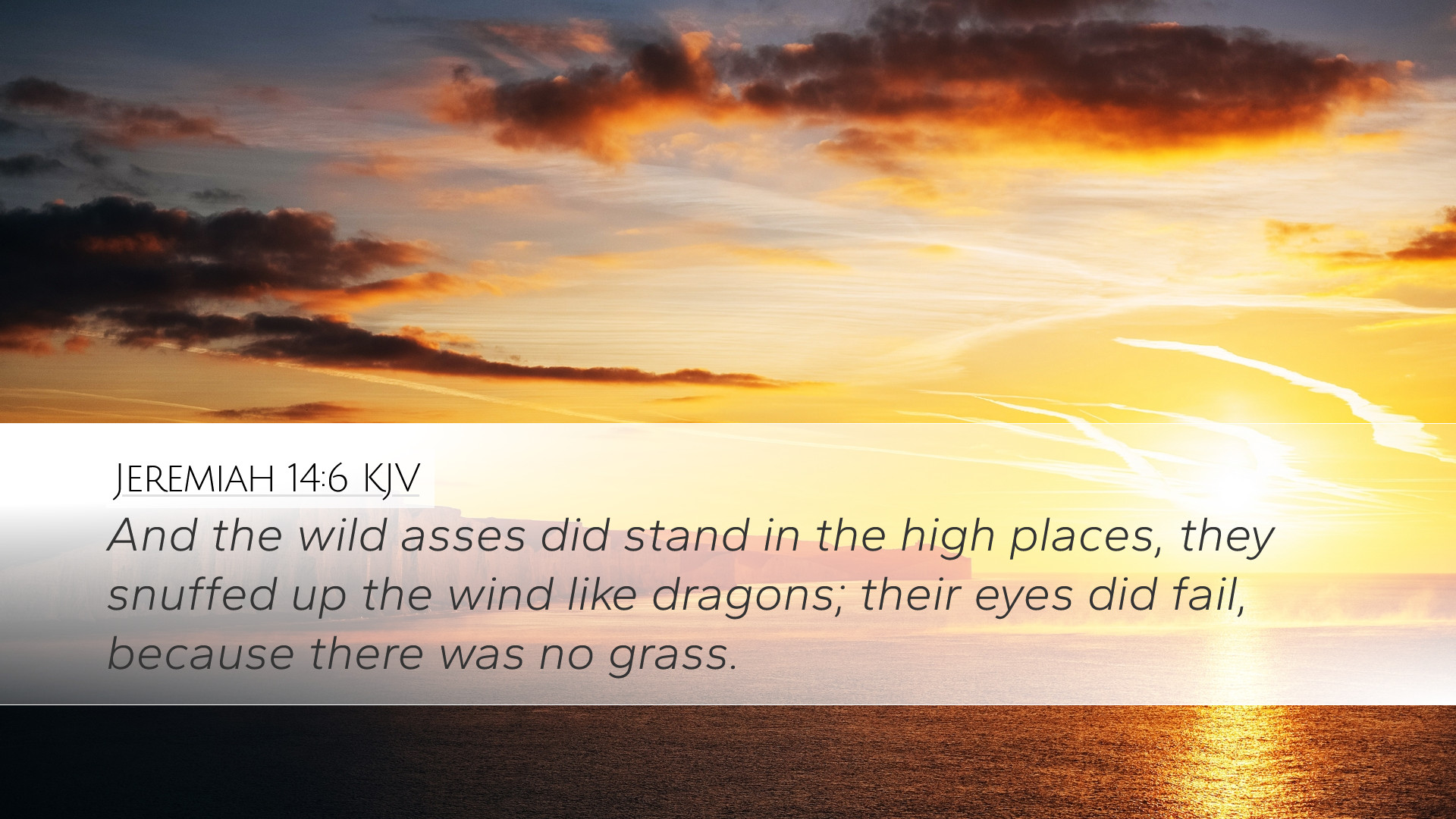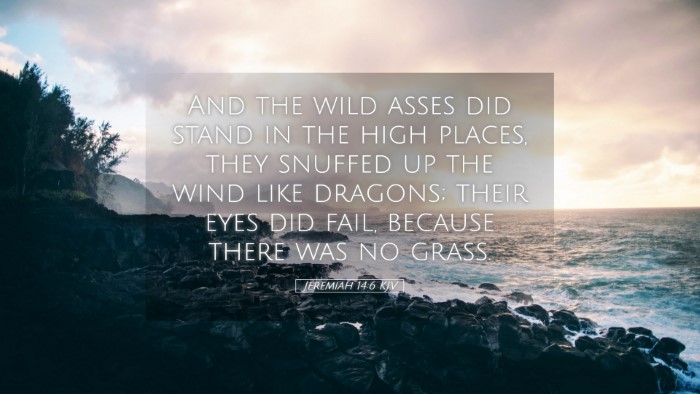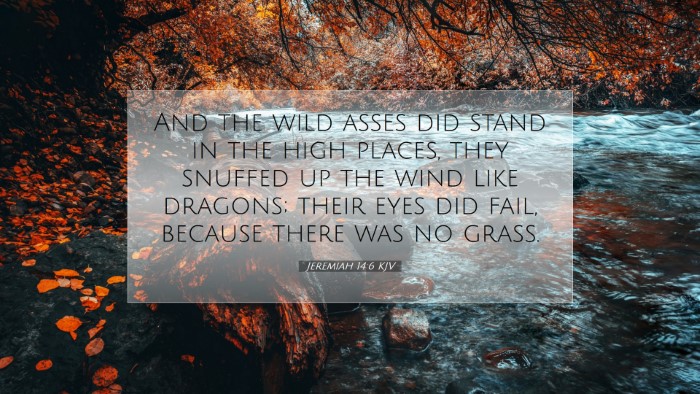Commentary on Jeremiah 14:6
Verse Analysis: “And the wild asses did stand in the high places; they snuffed up the wind like dragons: their eyes did fail because there was no grass.”
Background Context
In the book of Jeremiah, we observe a prophet who is deeply engaged in the plight of Israel, particularly during a time of great distress and disobedience. This verse occurs in a larger context of national suffering due to drought, which symbolizes God's judgment against the unfaithfulness of His people.
Historical Background
The time of Jeremiah's prophecy coincides with the decline of Judah’s monarchy and the impending Babylonian exile. This period was characterized by moral decay, idolatry, and a woeful departure from the covenant promises made by the Israelites to God.
Wild Asses and Their Symbolism
In this imagery, the “wild asses” represent the untamed and desolate aspects of the land. Their standing in high places and snuffing the wind is indicative of a search for sustenance in a barren land, paralleling the spiritual hunger of the people of Judah.
Matthew Henry notes that these animals, typically scavengers, are emblematic of the judgment of God, whereby even the most resilient creatures are rendered hopeless in the absence of nourishment, paralleling the people’s spiritual barrenness.
Detailed Exegesis
According to Albert Barnes, the wild asses are symbolic of the spiritual condition of Israel. Just as these animals seek food in vain, so too do the people of Israel seek satisfaction in their pursuits, only to find it lacking. Their “eyes did fail” speaks to the despair and hopelessness that results from their failure to abide by God’s commandments.
Adam Clarke further elaborates on this imagery by emphasizing the vividness of the scene depicted. The wild asses represent those who, despite their natural instincts for survival, find themselves helpless due to the divine judgment reflected in the drought. Clarke’s observation highlights the theme of desolation both in nature and in the spiritual state of the people.
Theological Implications
This verse serves as a strong reminder of the interconnectedness between spiritual and physical states. When the people turn away from God, they not only suffer spiritually but also experience physical consequences, as seen in the drought. It is a somber reflection on how the forsaking of divine law leads to calamity from which even the natural world suffers.
Lessons for the Faithful
- Desperation for Nourishment: Just as the wild asses search for grass, believers today must seek the true nourishment found in Christ. Times of spiritual drought can lead to exhaustion and despair; hence, the faithful are reminded to continually seek sustenance from the Word of God.
- The Reality of Spiritual Drought: This passage serves as a cautionary tale about the dangers of turning away from God. The bleakness experienced by the wild asses is a vivid image of what awaits the soul that neglects its spiritual wellbeing.
- The Call to Repentance: The imagery of failing eyes reflects a deeper sorrow and need for introspection. Believers are urged to examine their own lives and turn back to the source of living waters to restore their spiritual vigor.
Contemporary Application
For modern believers, Jeremiah 14:6 provides a compelling metaphor for understanding the consequences of spiritual neglect. In a world filled with distractions, the faithful are constantly reminded to prioritize their relationship with God. Just as the wild asses find themselves in a land void of sustenance, so too can individuals find themselves in spiritual voids if they neglect biblical teachings.
Conclusion
Jeremiah 14:6 encapsulates a profound message of despair and longing. Through the imagery of wild asses in a drought-stricken land, we gain insight into the spiritual condition of God’s people. The reflections from ancient commentaries serve as a clarion call for believers to seek God earnestly, addressing their spiritual needs before calamity ensues. Ultimately, Jeremiah's lamentation is not just an expression of sorrow but a call to renewal and restoration through repentance and faith.


